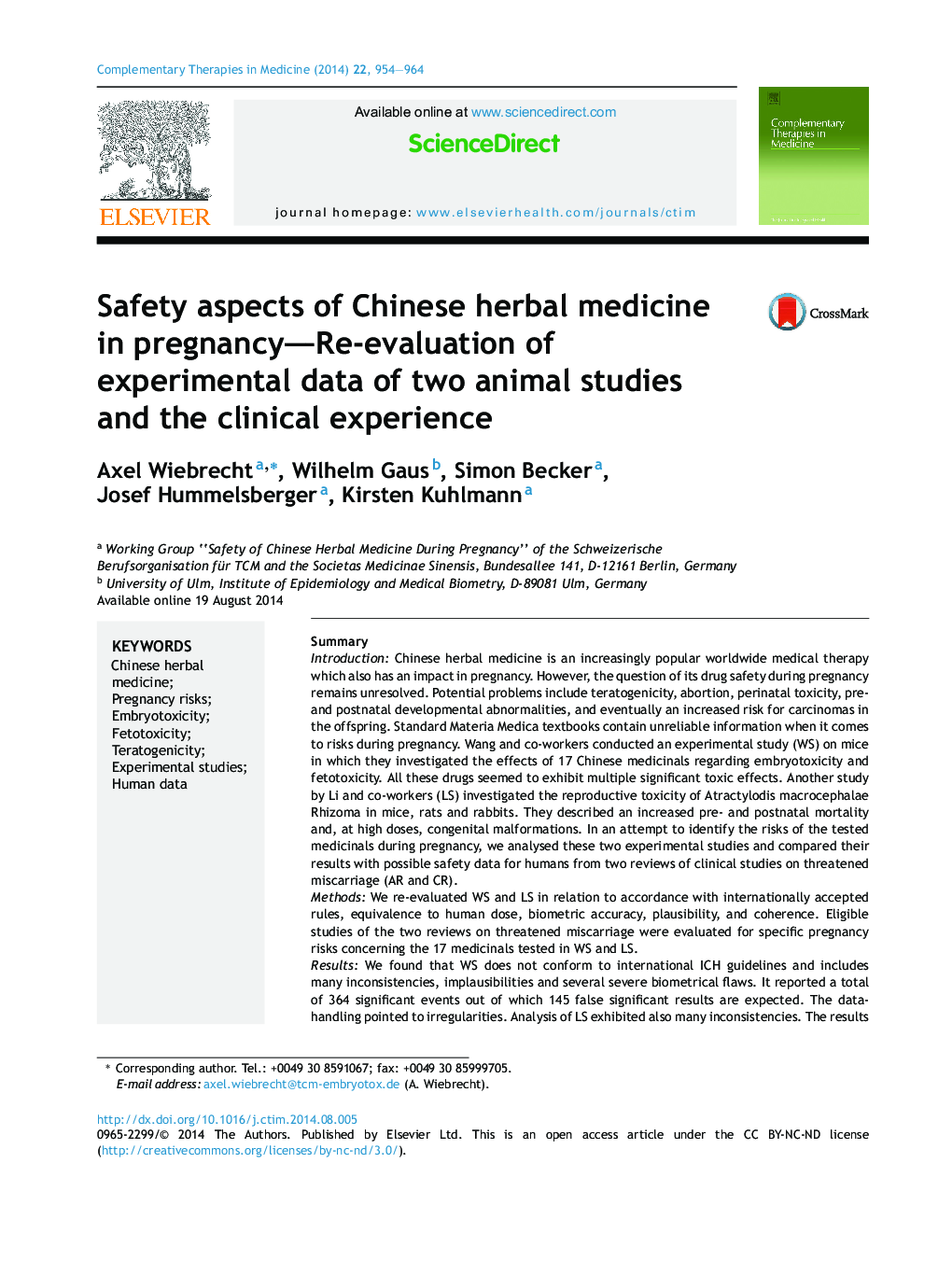| کد مقاله | کد نشریه | سال انتشار | مقاله انگلیسی | نسخه تمام متن |
|---|---|---|---|---|
| 5865547 | 1136515 | 2014 | 11 صفحه PDF | دانلود رایگان |
- Pregnancy risks of CHM must conform to modern safety requirements.
- Standard textbooks relating to risks of CHM during pregnancy are unreliable.
- Two recent animal studies are unreliable data sources for pregnancy risks in humans.
- The data of clinical studies suggest preliminary positive safety statements.
- Regarding teratogenicity, there are insufficient data for evidence of safety.
SummaryIntroductionChinese herbal medicine is an increasingly popular worldwide medical therapy which also has an impact in pregnancy. However, the question of its drug safety during pregnancy remains unresolved. Potential problems include teratogenicity, abortion, perinatal toxicity, pre- and postnatal developmental abnormalities, and eventually an increased risk for carcinomas in the offspring. Standard Materia Medica textbooks contain unreliable information when it comes to risks during pregnancy. Wang and co-workers conducted an experimental study (WS) on mice in which they investigated the effects of 17 Chinese medicinals regarding embryotoxicity and fetotoxicity. All these drugs seemed to exhibit multiple significant toxic effects. Another study by Li and co-workers (LS) investigated the reproductive toxicity of Atractylodis macrocephalae Rhizoma in mice, rats and rabbits. They described an increased pre- and postnatal mortality and, at high doses, congenital malformations. In an attempt to identify the risks of the tested medicinals during pregnancy, we analysed these two experimental studies and compared their results with possible safety data for humans from two reviews of clinical studies on threatened miscarriage (AR and CR).MethodsWe re-evaluated WS and LS in relation to accordance with internationally accepted rules, equivalence to human dose, biometric accuracy, plausibility, and coherence. Eligible studies of the two reviews on threatened miscarriage were evaluated for specific pregnancy risks concerning the 17 medicinals tested in WS and LS.ResultsWe found that WS does not conform to international ICH guidelines and includes many inconsistencies, implausibilities and several severe biometrical flaws. It reported a total of 364 significant events out of which 145 false significant results are expected. The data-handling pointed to irregularities. Analysis of LS exhibited also many inconsistencies. The results regarding congenital malformations were statistically insignificant and are based on small case numbers. Insofar as the safety data of the 17 medicinals were documented by eligible studies of the two reviews, there was no indication of an increased abortion rate in humans. Fetal growth retardation was not observed in the human studies. For neonatal health and postnatal development, there were sufficient safety data only for a few medicinals in the human studies. As for teratogenicity, only small case numbers (0 to 109) were available from the human data.ConclusionWS and LS are not reliable data sources for deriving pregnancy risks in humans for the tested Chinese medicinals. In addition, the results appear to contradict the outcomes observed in the treatment of humans. Regarding teratogenicity, for most Chinese medicinals, neither the safety nor the risk during pregnancy can be definitively ascertained. Further studies on the risks of Chinese medicinals during pregnancy are urgently needed.
Journal: Complementary Therapies in Medicine - Volume 22, Issue 5, October 2014, Pages 954-964
